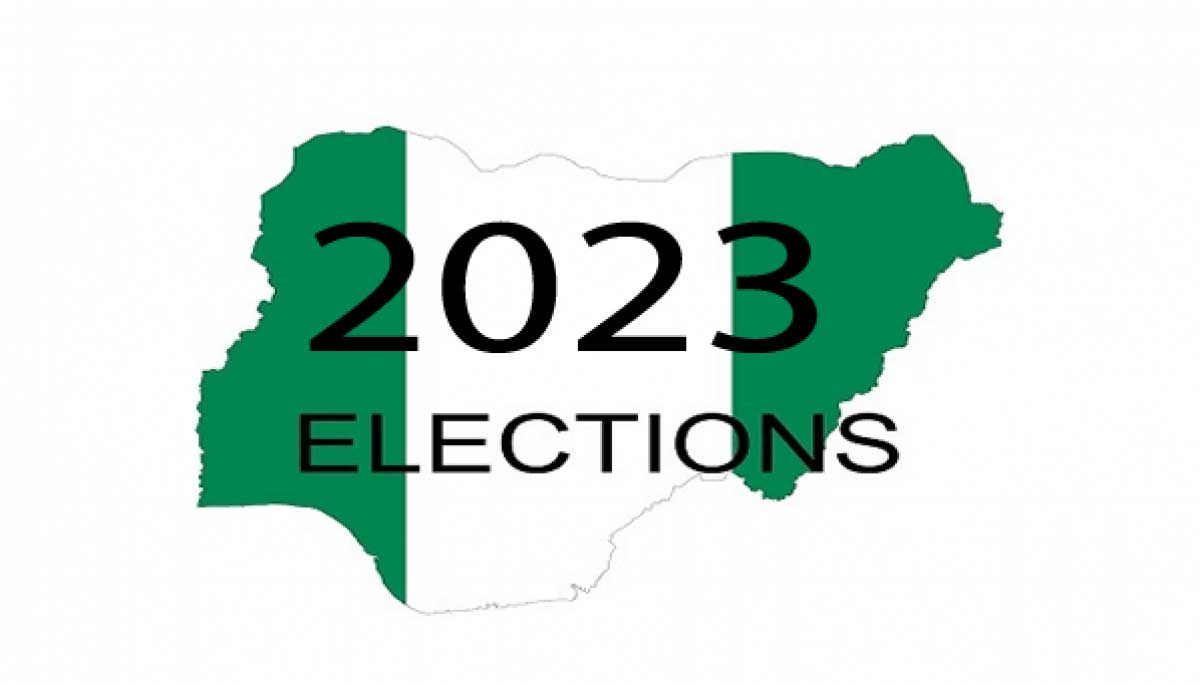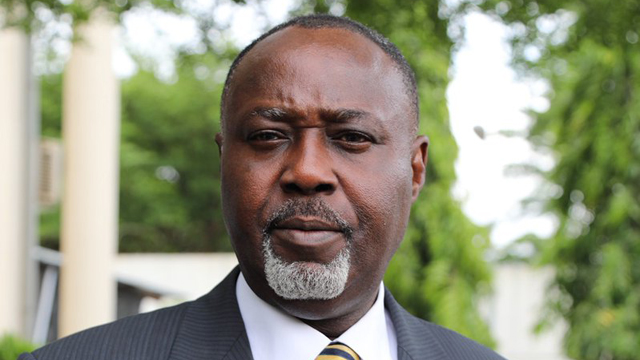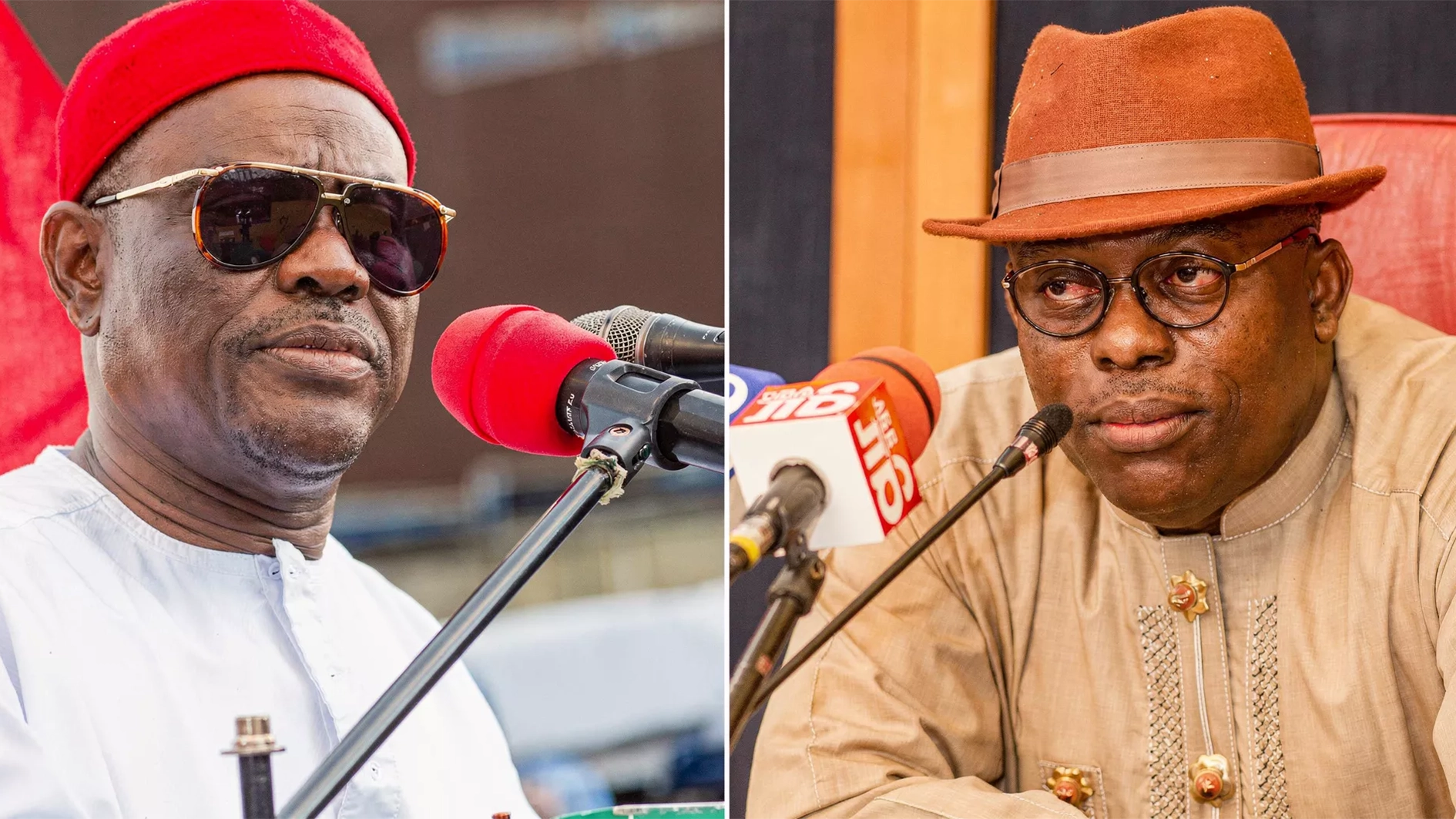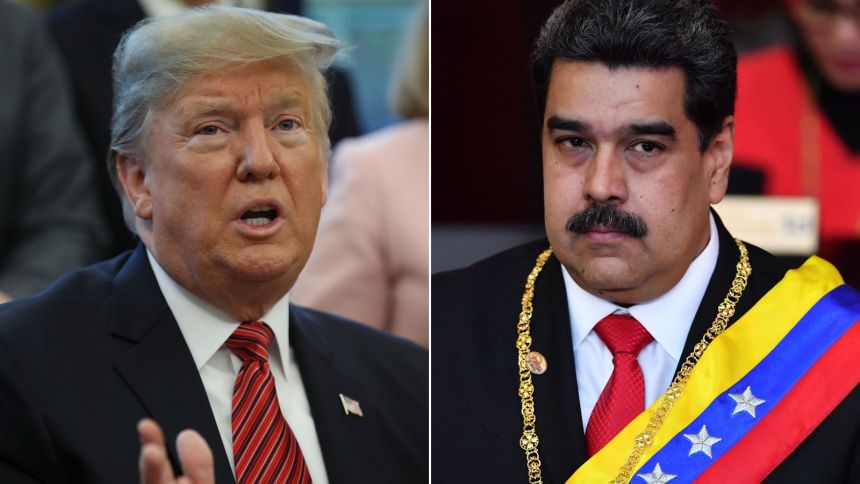
As political parties get ready to roll out their campaigns for the 2023 general elections, internal wrangling poses the major huddle to the prosecution of issues-driven electioneering in the competition for votes.
The situation at hand has elicited concerns as to whether the country’s political parties have evolved to inform enlightened voter preferences during elections as well as the concept of party supremacy is applicable to Nigeria’s political parties, especially against the backgrounds of their leadership recruitment processes.
Director, Abuja School of Political and Social Thought, Dr. Sam Amadi remarked that issue-based campaign will be feasible if professional groups, civil society groups and think-tanks get engaged with the campaign and provide leadership to clarify issues and force political parties to articulate their positions on such issues.
“This,” he noted, “should be a matter of necessity, because of the precarious nature of economic and social realities in Nigeria today. We need such a campaign, but the political parties are in serious disarray and seem to lack the degree of institutional capacity and responsiveness to conduct issue-based campaign.”
If issue-based campaigns should revolve around political parties, it could be a pipe dream, because the nature of the parties leave much to be desired. This is just as Amadi contended that the evolution of Nigerian political parties seems to have stagnated.
His words: “The political parties of the 1990 and 2000 were better organised than those of today. In fact, Nigerian parties have been deteriorating in terms of policy articulation and internal management. These parties have been reduced to Special Purpose Vehicles for the political career of some of the rich and powerful members.”
Given that unenviable status, he maintains that the concept of party may not necessarily apply. “The concept of party supremacy is one that is based on the notion that the party is a platform for mobilising policies for national transformation. It has more meaning in parliamentary system, where the party is the main structure or politics.
“In a presidential system with candidates running often on their strength and resources, it is difficult to maintain the supremacy of the party. The Nigerian constitution helps in this regard by stating that only parties can field candidate and can campaign for candidates. This means that it is parties that run elections, so parties should play greater role.
“The problem is that these parties lack real policy orientation and appropriate management such that party supremacy in Nigeria translate to authoritarian rule by the powerful few for their benefit. There can be no supremacy of the party if the party is just a vehicle for transactions and lack the organisational integrity that is built on clear programmes and ideological orientation.”
It is against the background of the foregoing that the current controversies within the major political parties could prove fatal to the cause of issue-based campaigns.
For instance, among the frontline political parties – the governing All Progressives Congress (APC), main opposition Peoples Democratic Party (PDP); wave-making Labour Party (LP), ubiquitous New Nigeria Peoples Party (NNPP); the conservative African Democratic Congress (ADC) and the redoubtable Social Democratic Party (SDP) – the internal strife and lack of cohesive structure could be the parties’ undoing.
Of the six front row political parties, which constitute a third of the 18 platforms recognised by the Independent National Electoral Commission (INEC), the two big parties are troubled by post-straw poll misgivings.
While the APC and PDP are grappling with internal recriminations, the other four, especially the ADC, are roiled by leadership crisis and inability to put together a campaign council.
Nigerians are worried that despite the long period allotted for electioneering, the political parties are so distracted by petty squabbling to focus on salient issues that should form the basis of voter preferences.
From the manner of the straw polls, it was evident that the urge to capture power rather than capacity and competence to address the myriad of socio-economic problems plaguing the country was paramount. Consequently, not long after the straw polls and nomination of presidential running mates, those who lost out started setting new standards of engagement.
That could explain why two months to the commencement of electioneering, the highpoint of political activities within the competing platforms for the 2023 general elections is crisis management. What follows is a run down of how each of the frontline six parties are gearing up for the campaigns set to kick off on Wednesday, September 28.
APC: Hidden Agenda/Campaign Intrigues
The June 6-8 special convention and presidential primary of the governing All Progressives Congress (APC), threw up a surprising outcome. Following the failure of the alleged plots by forces loyal to President Muhammadu Buhari to programme a particular outcome, former Lagos State governor and national leader of the party, Asiwaju Bola Tinubu, was returned winner of the hotly contested straw poll.
Recall that there was an attempt to prop current President of Senate, Dr. Ahmad Lawan, who purchased his presidential nomination form near to the deadline, as the consensus candidate. It could also be noted that few months to the beginning of the nomination processes, some stakeholders had flown the kite of the possibility of retaining the presidential ticket in the North.
It was perhaps based on the plan to breach the gentleman agreement of power rotation between North and South, and particularly between the North and Southwest in 2014, that the leaders of the Southwest caucus held a dusk to dawn meeting in Abuja. At the meeting, which was attended by former interim national chairman, Bisi Akande and former Ogun State governor, Segun Osoba alongside presidential aspirants from the zone.
Although the meeting was convened ostensibly to explore the possibility of a consensus candidate, neither the Vice President, Prof. Yemi Osinbajo nor Tinubu agreed to consider the option of stepping down, just as Pastor Tunde Bakare also declined.
At the convention ground, the Lawan scare was propelled by the fact that he was the lone aspirant from Northeast and therefore could spring a surprise. But, that fear dissipated when APC governors from the North announced their resolve to support a candidate from the South in line with the North/South power rotation arrangement in the country.
Consequently, as the contest became an all-South affair, Tinubu’s chances were further enhanced by the withdrawal of other notable aspirants from Southwest, particularly Governor Kayode Fayemi and Senator Ajayi Boroffice among others.
It was obvious that Tinubu’s emergence did not go down well with some stakeholders, just as the emergent presidential candidate was not pleased with Prof. Osinbajo and Lawan’s attempt to contest against him. Yet, the openness of the electoral process did not provide avenue for disputations.
But, the choice of Senator Kashim Shettima as the presidential running mate sparked further concerns, as some stakeholders in the party, led by former Secretary to Government of the Federation (SGF), David Babachir Lawal, kicked against the same faith ticket.
Amid the protests by some APC stakeholders, Tinubu told party faithful that his decision to choose Shettima followed wide consultations with relevant stakeholders, particularly the governors. It could be recalled that while the APC governors insisted that one of them should be considered, Governor Babagana Zulum, whom Tinubu picked, passed the lot over to his benefactor, Senator Shettima.
This also stirred silent animosity among Northwest governors who believed that their zone should have been considered given their high voting figures. With the new posturing, the party and its presidential candidate started finding it difficult to set up a campaign council.
The silent wit games within APC continues to feed misgivings, thereby stalling the composition of the Presidential Campaign Council.
A source within the party’s leadership confided in The Guardian that despite the combined back channel and consultative meetings embarked on by the APC Presidential standard bearer, Asiwaju Bola Tinubu, the party is yet to find its “cohesive rhythm.” But, another source close to the APC Presidential Campaign Council in Abuja insisted that the party remain solidly prepared for the campaign, explaining that the reason the Campaign Council list is yet to be released is to ensure that all interests, as admonished by the President, are represented within the council.
Moreover, Tinubu had, while visiting the APC Secretariat recently, denied any quarrel between him and the national chairman, Senator Abdullahi Adamu, who tried to project the Senate President, Ahmad Lawan, as the consensus candidate during the party’s presidential primary.
“We were governors together, before God put us together on this project again, he is going to deliver as the party’s chairman for me to become Nigeria’s president, and I am very confident of that.
“I read in some papers about disagreement between myself and the chairman and that was a very big lie. They didn’t know that we have come a long way, the big masquerade dance not in the cage, but the market square, and that is what Adamu used to be, full of wisdom,” the presidential contender had stated.
Indeed, as the man who is going into electoral battle, Tinubu has continued to fine-tune his strategies, embarking on further consultative meetings, even as he tries to carry the party stakeholders along.
The effort towards genuine reconciliation is, however, being resisted by those who plotted his disqualification by the screening committee headed by the party’s former national chairman, Chief John Odigie-Oyegun. But for the last minute intervention by President Buhari, the committee was said to have recommended the disqualification of Tinubu and former Imo State governor, Senator Rochas Okorocha.
How these intrigues and hidden agenda would help APC to pursue issue-based campaigns is left to be seen in the coming days.
PDP: Zoning Pains
THE cracks within the main opposition PDP, has continued to widen, putting a big halo doubts on its ability to play together as a united group. It was PDP that introduced the principle of power rotation between the North and South in its constitution.
But, in 2010, following the sudden death of President Umaru Musa Yar’Adua in office, his running mate, Dr. Goodluck Jonathan, who succeeded him contested for a substance term and subsequent second term. Feeling shortchanged, some members of the Northern caucus of the party opposed another four-year term by Jonathan, who hails from South.
In a bid to drive home their disagreement, the stakeholders, led by former Vice President Atiku Abubakar, moved over to the newly formed APC, where they supported President Buhari to mount the saddle.
Although Atiku and some of his allies rejoined PDP in the build up to the 2019 poll, their attempt to win the presidential poll was not successful. Nigerians decided to support President Buhari for a second term instead of empowering Atiku, whose presidency would have retained the Presidency in the North for another eight years.
It is that unfinished business over zoning that resurfaced in the current crisis. Last Wednesday, the Southern flank of the party declared their intention to keep away from the Presidential Campaign Committee put together by the former Vice President.
Announcing the side’s rebuff, a former Deputy National Chairman of the party, Chief Olabode George, said they have vowed to shun the campaign committee until the national chairman, Dr. Iyorchia Ayu, fulfills his promise to resign if a northern presidential candidate emerges.
Prominent PDP stalwarts that sided with the Rivers State governor to turn their backs on Atiku’s campaign included Governors Seyi Makinde, (Oyo); Ifeanyi Ugwuanyi (Enugu); Okezie Ikpeazu (Abia); Dr. Samuel Ortom (Benue).
Others are former governors Donald Duke (Cross River); Ibrahim Dankwambo (Gombe); Jonah Jang (Plateau); Ayo Fayose (Ekiti); Segun Mimiko (Ondo) and former Ministers Jerry Gana (Information) and Mohammed Adoke (Justice).
Although the group has not announced a defection like the Atiku group did in 2014, the implication of their withdrawal is that the Southern and Middle Belt zones of the party would not be canvassing for votes for the PDP presidential candidate.
However, in apparent response to the breakaway, the PDP leadership convened an emergency meeting, where it reviewed the likely implications of the division on the party’s preparations for next year’s poll.
According to the national publicity secretary of the party, Debo Ologunagba, despite the withdrawal by the Wike group from the presidential campaign committee, “one thing is clear, no one has rejected our presidential candidate; that is very important.”
Meanwhile, one of the allies of the former Vice President Atiku, Hon Abraham Chila, said the party can go on and win the presidential election without the support of the Wike group, stressing that PDP’s traditional voters will surely vote for Atiku.
On the calls by some PDP stakeholders on Dr. Ayu to resign, Chila stressed that those making the calls are either mistaken or mischievous, arguing that the former Senate President emerged through a foolproof process that was not controverted.
He added that urging the national chairman to quit when he committed no impeachable offence amounts to questioning the very rudiments of democracy as only the party through a national convention, which is the highest caucus of the party, could make such demands.
“Ayu has not committed any offence. Therefore, anybody asking him to leave office is indirectly calling for the proscription of PDP, which is not attainable in a democracy. People should look beyond Ayu as an individual, he represents that party on account of the mandate freely given to him.
“If I may add, what would be the compensation for the North Central if Ayu resigns? The North Central has been making sacrifices for the growth and stability of PDP. Do we have to wait for 24 years before being considered for the presidential ticket, why must we throw away the consolation prize of national chairman?” Chila demanded.
Also, former national publicity secretary of the party, Chief Olisa Metuh, echoed the words of Chila, alleging that some of those joining Wike to withdraw from the presidential campaign committee are known to harbor personal disdain for Atiku.
Metuh maintained that the presidential campaign committee would carry on with its programmes, contending that any attempt to stall the campaign would mean succumbing to those who do not want the party to win.
LP: Street Angst
FOR the Labour Party (LP), its organogram raises concern about its ability to keep to issues during campaigns. LP has been described as lacking the necessary political structure and stamina to participate competitively in the presidential contest.
Consequently, rallying around the party’s presidential standard bearer, Peter Obi, the supporters of the party and the former Anambra State governor have been holding street marches in a show of strength.
Supporters of LP and its presidential candidate have also dominated the social media to espouse their determination for a new Nigeria, even as they heap the blames of the country’s socio-economic challenges on past leaders and the bigger political platforms.
As the supporters of the LP presidential candidate, called the ‘Obidients’ continue to demonstrate their loyalty to their cause, the party machinery remains in the background, thereby giving the impression that the presidential standard bearer is the equivalent of an independent candidate.
Based on the foregoing, it would be hard to evaluate LP’s loyalty to issue-based campaigns given the amorphous nature of its structure.






